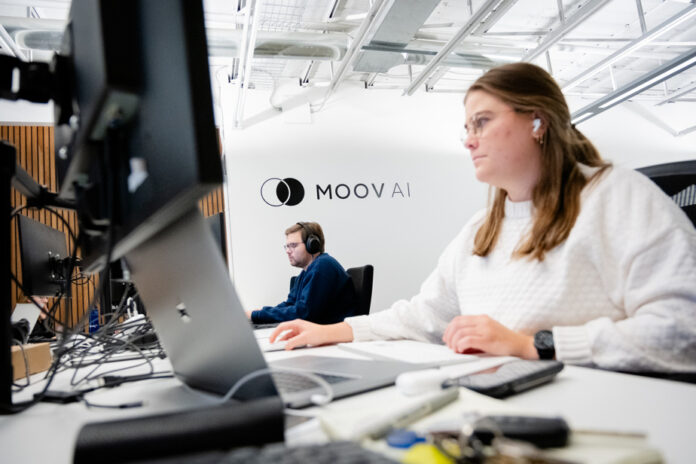The linking of the research community and the business community is at the heart of the industry’s issues. For Julien Billot, president and CEO of Scale AI, the artificial intelligence (AI) supercluster in Canada, there are not 36 solutions to this crucial issue.
“If we want our high-level researchers to work for the benefit of the Canadian economy, we first need strong business demand for AI,” he believes. We also need people who bridge the gap between researchers and companies, like Moov AI, IVADO Labs or Videns Analytics. »
These matchmakers have the mission of embodying the expertise of researchers into operational and marketable solutions. This is why Julien Billot uses the image of the triangle to represent the ecosystem: the three branches go hand in hand.
IVADO Labs has also launched 86 concrete AI projects in the last 18 months. “Almost all, 90%, will reach the production stage. We are light years away from what we saw five years ago, where we mainly talked about proofs of concept,” underlines Frédéric Laurin, senior director of partnerships at Mila, the Quebec Institute of Artificial Intelligence.
Dominic Danis, CEO and co-founder of Moov AI, also notes a change in mentalities in business. “When we started, in 2018, we had to convince leaders of the merits of AI. Today, this is no longer the case. »
While some sectors are more advanced than others in terms of adopting artificial intelligence (finance, in particular), the subject affects all areas, from agriculture to construction.
He gives the example of Lucid, a company that combines artificial intelligence and music to reduce patient anxiety. In another field, Druide Informatique, to whom we owe Antidote, now integrates deep learning into its software. The small Quebec company Whale Seeker also uses AI to facilitate the detection of marine mammals.
Scale AI, for its part, helps the multinational McCain to monitor its potatoes, “from potatoes to fries”, as Julien Billot explains.
It is difficult to know the exact number of companies that use AI in their daily operations in Quebec. “The percentage is relatively low, around 10%,” says Frédéric Laurin.
Dominic Danis adds. “Quebec is lagging behind. There are a lot of tests, but there are not enough real solutions applied. » According to him, the manufacturing sector and construction will be the next to embark on the adventure. “I also have great hope that we will be able to help areas of impact, such as health, in the coming years. »
While waiting for this revolution, Moov AI supports different companies in modernizing their processes. “We predict the demand for perishable products in all Metro grocery stores in Quebec,” illustrates Dominic Danis. This optimizes labor and reduces losses. » The new Ricardo platform is also part of its achievements.
The CEO of Mila points out that an AI solution remains expensive for a company if it is not ready-made. “It’s an investment,” admits Valérie Pisano. Businesses know that technology has value, but they’re not sure where to start. »
The expert is concerned to see other countries investing more quickly than Canada in infrastructure. “We are at risk of finding ourselves at the mercy of large companies to have access to cloud computing and other products that we will buy from the giants of Silicon Valley or Nvidia. No one will do a ChatGPT in Canada, for example. »
She notes that since January, the entire planet has woken up to both the possibilities and the challenges of AI. “We are now in an AI race. It will be increasingly difficult to stay ahead. We cannot rest on our achievements. »
Julien Billot agrees. “Businesses must understand the importance of investing in AI now. We must not waste time, because outside the borders, we do not wait. »





